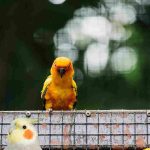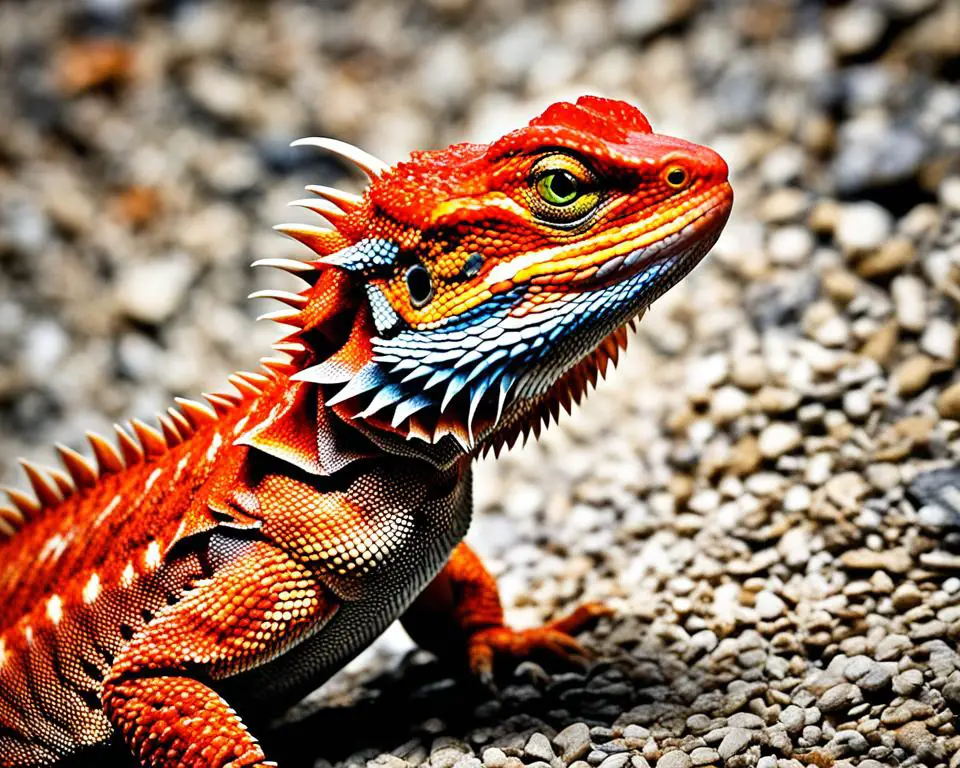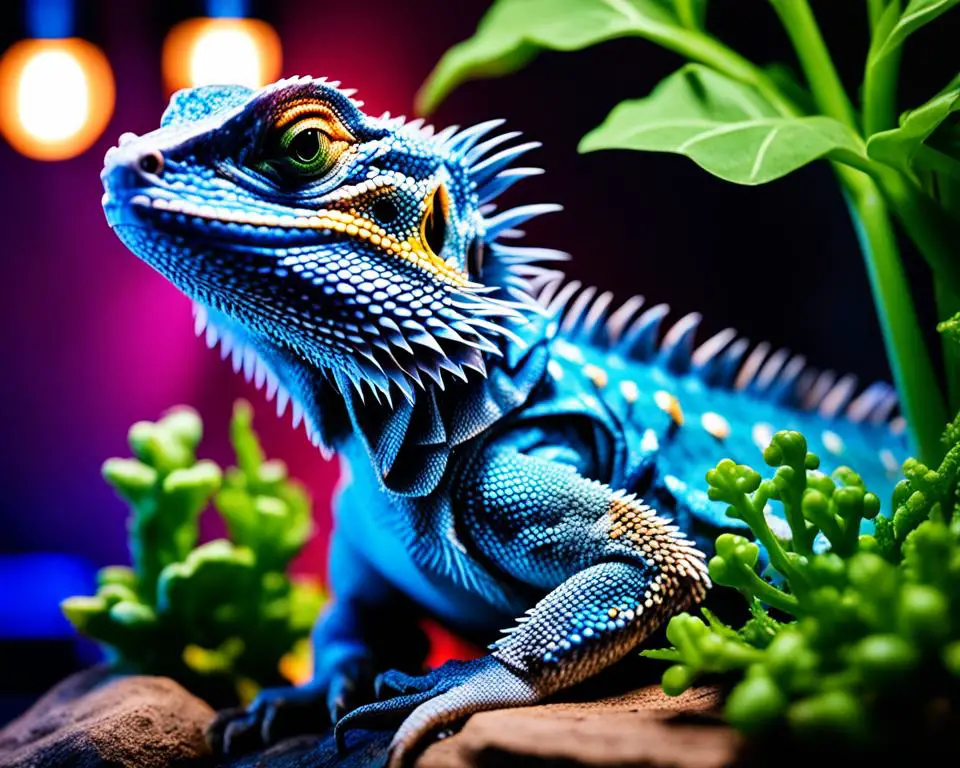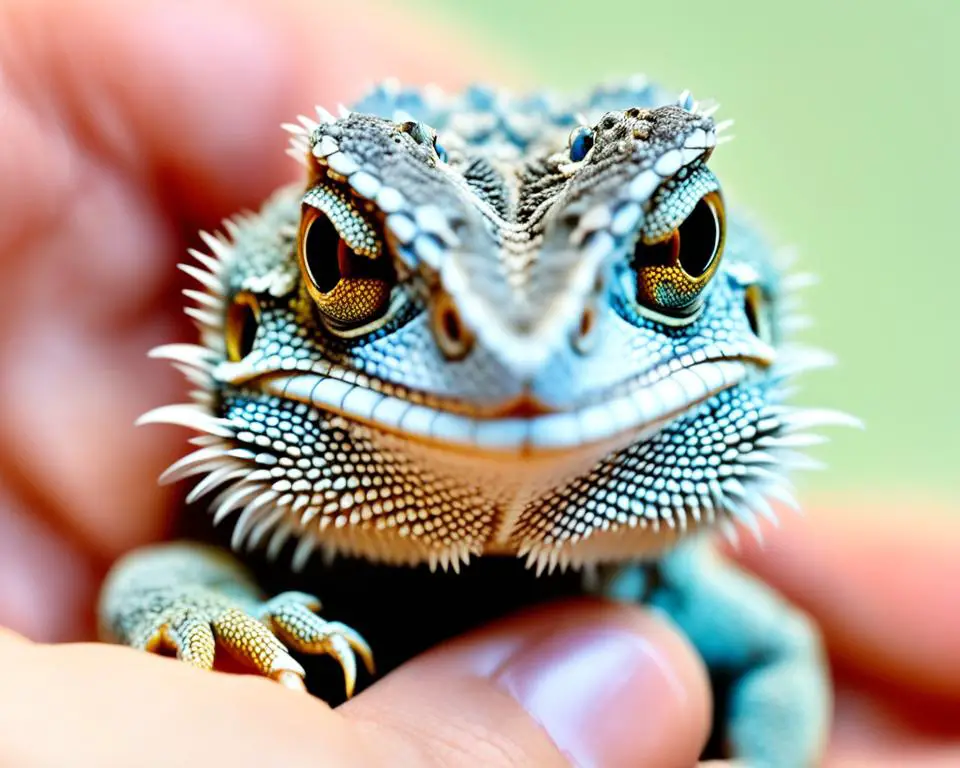Do you love to see your pet bearded dragon munching on a bit of lavender? Is it safe for them to eat? Lavender is a popular herb with many uses and benefits, but can it be added to your bearded dragon’s diet?
In this article, we’ll dive deep into the answer to this question by looking at the nutritional value of lavender and whether or not it is an appropriate addition to a bearded dragon’s diet. Read on to find out if you should serve up some lavender for your beloved pet!
Nutritional benefits of lavender for bearded dragons
The nutritional benefits of lavender for bearded dragons are surprisingly plentiful! Lavender is an excellent source of vitamins A, C, and K, as well as essential fatty acids.
These vitamins and nutrients provide a plethora of health benefits for the bearded dragon, such as aiding digestion, improving skin and shell condition, reducing inflammation, and boosting the immune system.
Lavender is also packed with antioxidants that can help to protect the bearded dragon’s body from damage caused by environmental toxins and free radicals.
That said, lavender is also high in fiber which is great for promoting regular bowel movements in bearded dragons.
Finally, lavender can even help to reduce stress levels in these sometimes-skittish creatures!
Is lavender oil safe for bearded dragons?
Before we dive deep into the answer to this question, it’s important to note that there is a big difference between lavender oil and the herb itself.
Lavender oil is a highly concentrated form of the herb and should be avoided when it comes to feeding your bearded dragon.
Lavender oil contains eugenol and linalool, both of which have been known to be toxic to lizards, including bearded dragons.
As far as edible forms of lavender go (i.e., lavender leaves), these are safe for bearded dragons as long as they are pest-free and grown without pesticides or herbicides.
However, since these plants contain very low levels of nutrients necessary for healthy bearded dragon diets, they should not make up the majority of their diet.
Effectiveness
Regarding effectiveness, lavender can be a great addition to your bearded dragon’s diet.
However, since the nutritional content of edible forms of lavender is low, it should not make up most of your pet’s diet.
Bearded dragons’ diet mainly consists of insects and leafy greens, so lavender should supplement their diet rather than replace other essential elements.
How do I include lavender in your bearded dragon’s diet?
Including lavender in your bearded dragon’s diet is quite easy! All you need to do is make sure that the lavender you are using is free from harmful chemicals and pests.
When adding lavender to your Bearded Dragon’s diet, it’s important to remember that this should be done sparingly and not every day. Generally, no more than a teaspoon of dried or fresh chopped lavender should be added per feeding.
This herb can be added either directly to their food or put in the food that they have access to throughout the day.
Since most reptiles struggle with digestion, one way to include the health benefits of lavender in their diet is by including powdered or crushed leaves in their base meals.
These meals can include insect larvae, gut-loaded crickets and worms, commercial pellets, fruits and vegetables (dark greens are particularly beneficial), as well as other supplemental foods like mealworms or waxworms.
You can also mix some powdered or crushed lavender leaves into any supplements you give them, such as calcium powder or multivitamins, ensure what you’re giving them doesn’t already contain large amounts of any one supplement since too much of one vitamin can cause harm if overconsumed.
Note: if you want to give your furry friend even more variety in terms of taste, then adding fresh or dried lavender directly into their food might not work out too well.
In this case, you could consider using some mixes or recipes that naturally feature lavender in the ingredients. This would allow for the availing of its nutritional benefits without overwhelming them with an unfamiliar flavor at mealtime.
Can bearded dragons eat lavender flowers?
Bearded dragons can eat lavender flowers. However, they should be consumed in moderation. Lavender flowers are high in sugar, so too much could lead to digestive issues for your pet.
Also, flowers should be free from pesticides and chemicals and only be given as an occasional treat. When feeding lavender flowers to your bearded dragon, it is important to make sure that they are finely
Is lavender an appropriate addition to a bearded dragon’s diet?
The answer is yes. Lavender can be incorporated into a bearded dragon’s diet. In fact, it is considered to be one of the safest and most nutritious plant-based foods that bearded dragons can eat.
Lavender can provide beneficial vitamins and minerals, such as vitamin A, magnesium, and iron. Additionally, lavender has been known to provide an aid for digestive issues in a variety of animals, including reptiles.
Before feeding your bearded dragon any plant-based food items, you should always make sure that you consider their size when giving them portions beforehand; for example, smaller amounts for younger bearded dragons, if offered at all.
Similarly, although herbs are safe for most reptile species if given in small amounts, many reptiles have been known to develop allergic reactions or digestion issues due to overfeeding.
As a result, it is important always to keep your pet’s diet balanced by consulting the guidance of an expert veterinarian on what type and amount would be ideal depending on their specific needs and comfort level while providing similar food items in moderation when needed.
What types of plants are suitable for feeding bearded dragons?
Bearded dragons are omnivores, meaning they can eat both plant-based and animal-based foods. When it comes to plants, there are a number of types that are suitable for feeding bearded dragons.
Young hatchlings can be fed leafy greens like collard greens, mustard greens, and dandelion greens.
For adults, you can add dark green vegetables like kale or Swiss chard as well as a variety of fruits such as apples, apricots, blueberries, raspberries, and cantaloupe. You should also offer them occasional treats such as cooked eggs or mealworms.
In addition to vegetables and fruits, you should provide edible flowers like hibiscus blooms or marigold petals for bearded dragons to enjoy snacking on from time to time.
There are also several varieties of edible succulents that can be offered as part of their diet; opuntia pads (prickly pear) are very popular with these lizards!
You can order many of these plants online, so your dragon will have plenty of choices when it comes to eating greenery.
What flowers are poisonous to a bearded dragon?
It is important to note that some plants and flowers can be toxic to bearded dragons, so it is essential to research before offering them any new food.
Some of the most common flowers that are poisonous to bearded dragons include lilies, tulips, daffodils, and hyacinths.
Summary
Before we move on to the conclusion, we’ve summarized this article into a short list of key points for you to remember:
- Bearded dragons can eat lavender flowers in moderation.
- It is important to ensure the flowers are free from pesticides and other harmful chemicals before feeding them to your pet.
- When feeding lavender to a bearded dragon, it’s important to consider its size when giving them portions.
- There are several types of plants that are suitable for feeding bearded dragons, such as leafy greens, dark green vegetables, fruits, and edible flowers.
- Certain plants and flowers can be toxic to bearded dragons, so research before offering them any new food.
Conclusion
Bearded dragons can eat lavender, but it should only be given in moderation. Lavender provides a nutritious snack for your bearded dragon, but it should not be the primary source of food.
Make sure that lavender is only served occasionally and always as part of a balanced diet with plenty of variety, such as insects, leafy greens, and fruits.
Want to learn more about bearded dragons?
Ready to boost your knowledge to the next level? If so, check out the articles below:
- 7 Tips to Take Your Bearded Dragon Outside ([year])
- Can Bearded Dragons Get Fleas? and How to Get Rid of Them!
- Coconut Oil on Bearded Dragons: Why, When, and How to Use It ([year])






